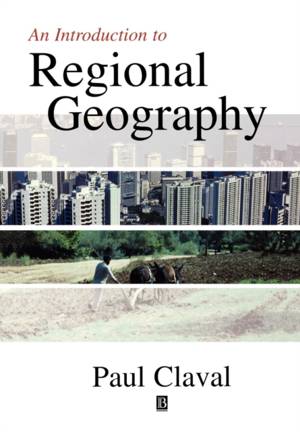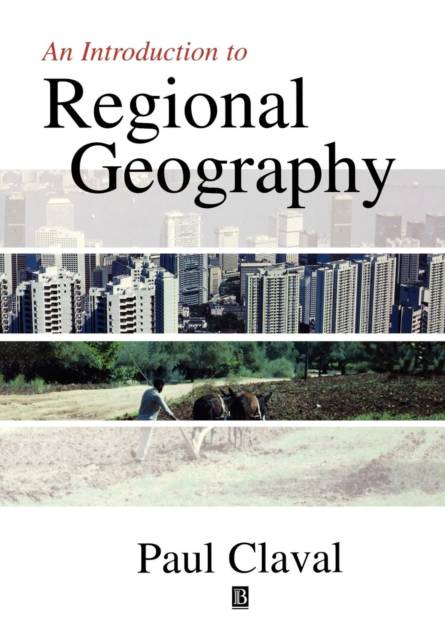
Bedankt voor het vertrouwen het afgelopen jaar! Om jou te bedanken bieden we GRATIS verzending (in België) aan op alles gedurende de hele maand januari.
- Afhalen na 1 uur in een winkel met voorraad
- In januari gratis thuislevering in België
- Ruim aanbod met 7 miljoen producten
Bedankt voor het vertrouwen het afgelopen jaar! Om jou te bedanken bieden we GRATIS verzending (in België) aan op alles gedurende de hele maand januari.
- Afhalen na 1 uur in een winkel met voorraad
- In januari gratis thuislevering in België
- Ruim aanbod met 7 miljoen producten
Zoeken
Omschrijving
The idea of the region has been a central concept in the understanding of the natural environment, of human society and culture, and of their interactions, from the ancient Greeks to the present. In this book Paul Claval provides a critical introduction to the ways in which the concept of the region has been, is, and could be used to make sense of spatial organization and areal variation in human activities. He examines both economic and policy issues, and relates these to culture, regional identity and ecology.
The book is divided into three parts. Part I provides a concise account of regional studies from the ancient Greeks to the present. It then outlines the main current issues in regional geography. Part II describes the main perspectives on the division of space, the different kinds and typologies of regions, and contrasting modes of regional representation. Paul Claval also examines here how ecological, economic, social, cultural, and political phenomena can be understood through their areal variations. Part III looks at how states and non-state societies organize themselves regionally and of the evolution in contemporary dynamics of such modes of organization. The author shows how the perception, representation, imposition and claiming of regions changes from non-state societies, through traditional to industrial societies, and considers the merging of territorial borders of a globalized world economy.
This is a complete and penetrating survey of the regional concept as a key to the geographical imagination. Written by France's most prominent geographer, it draws equally on Anglo-American intellectual traditions, and is illustrated by a wide range of examples drawn from all over the world.
The book is divided into three parts. Part I provides a concise account of regional studies from the ancient Greeks to the present. It then outlines the main current issues in regional geography. Part II describes the main perspectives on the division of space, the different kinds and typologies of regions, and contrasting modes of regional representation. Paul Claval also examines here how ecological, economic, social, cultural, and political phenomena can be understood through their areal variations. Part III looks at how states and non-state societies organize themselves regionally and of the evolution in contemporary dynamics of such modes of organization. The author shows how the perception, representation, imposition and claiming of regions changes from non-state societies, through traditional to industrial societies, and considers the merging of territorial borders of a globalized world economy.
This is a complete and penetrating survey of the regional concept as a key to the geographical imagination. Written by France's most prominent geographer, it draws equally on Anglo-American intellectual traditions, and is illustrated by a wide range of examples drawn from all over the world.
Specificaties
Betrokkenen
- Auteur(s):
- Vertaler(s):
- Uitgeverij:
Inhoud
- Aantal bladzijden:
- 316
- Taal:
- Engels
Eigenschappen
- Productcode (EAN):
- 9781557867339
- Verschijningsdatum:
- 6/08/1998
- Uitvoering:
- Paperback
- Formaat:
- Trade paperback (VS)
- Afmetingen:
- 171 mm x 246 mm
- Gewicht:
- 539 g

Alleen bij Standaard Boekhandel
+ 206 punten op je klantenkaart van Standaard Boekhandel
Beoordelingen
We publiceren alleen reviews die voldoen aan de voorwaarden voor reviews. Bekijk onze voorwaarden voor reviews.









